Is it possible to drain water from a washing machine into a septic tank?
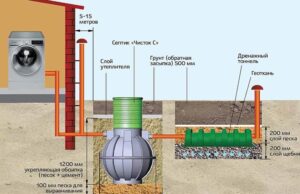 Many owners of private houses install a septic tank. This is an element of a local treatment plant. The water is collected in a settling tank, where it is purified using bioenzyme preparations and natural microorganisms. Owners need to monitor the composition of the wastewater so as not to harm the bacteria living in the sump. Is it possible to drain water from a washing machine into a septic tank? How can a solution with detergent affect bioenzyme preparations? Let's look into this issue.
Many owners of private houses install a septic tank. This is an element of a local treatment plant. The water is collected in a settling tank, where it is purified using bioenzyme preparations and natural microorganisms. Owners need to monitor the composition of the wastewater so as not to harm the bacteria living in the sump. Is it possible to drain water from a washing machine into a septic tank? How can a solution with detergent affect bioenzyme preparations? Let's look into this issue.
Is it permissible to connect the machine to a septic tank?
A well-chosen local treatment facility makes it possible to provide comfort in a private home comparable to that of an apartment. It is important to comply with all the nuances, as well as the requirements and standards for operating a septic tank. Before purchasing a sump tank, it is worthwhile to figure out what kind of water is allowed to be discharged and what is not.
Household chemicals contained in wastewater have a detrimental effect on the beneficial bacteria living in the septic tank.
Fortunately, not all detergents used for laundry are harmful to the cleaner. Compositions that do not contain chlorine, phosphates and petrochemical elements are safe for the septic tank. If you use “gentle” household chemicals, then connecting the machine to an autonomous sewer system is acceptable.
Today you can find special household chemicals for septic tanks on sale. These are detergents for washing dishes, plumbing, and washing clothes. These compositions are specially designed so that residents of private houses do not suffer from “headaches” regarding monitoring the quality of water drained into the tank.
Let's try to dwell in more detail on substances that should not enter the septic tank. It is important to ensure that the following does not enter the treatment plant:
- chlorine;
- chemistry with a surfactant content of more than 5%;
- phosphates;
- petroleum products: gasoline, fuels and lubricants, kerosene, solvents, etc.;
- medications that contain formaldehyde and oxidizing agents. They can lead to a stench from the septic tank;
- alcohol;
- alkaline substances;
- sulfates;
- products with dyes and flavors.
Today there is a fairly large selection of “gentle”, natural laundry detergents. Natural extracts, sodium carbonate, biodegradable substances, and vegetable oils are absolutely harmless to bacteria living in a septic tank. Sump tanks are not afraid of ordinary soapy water.
If you use only natural, phosphate-free, biodegradable detergents for washing, then you can connect the automatic washing machine to a septic tank.
The main thing to remember is that the fewer components foreign to microorganisms enter the sump, the more efficiently and longer the structure will work. Therefore, in order to extend the “life” of the septic tank, be sure to follow the recommendations for using exclusively natural laundry detergents that do not contain “harmful” chemicals.
Where to dispose of waste from the machine?
If you are not ready to give up your usual household chemicals, for example, washing powders containing more than 5% chlorine, phosphates and surfactants, you should find another solution for removing “waste” from the machine. How else to dump water, if not into a sump? You can choose one of the following methods:
- ground filtration areas;
- drain well;
- storm drainage;
- water storage (any sealed container will do);
- filter cassette.
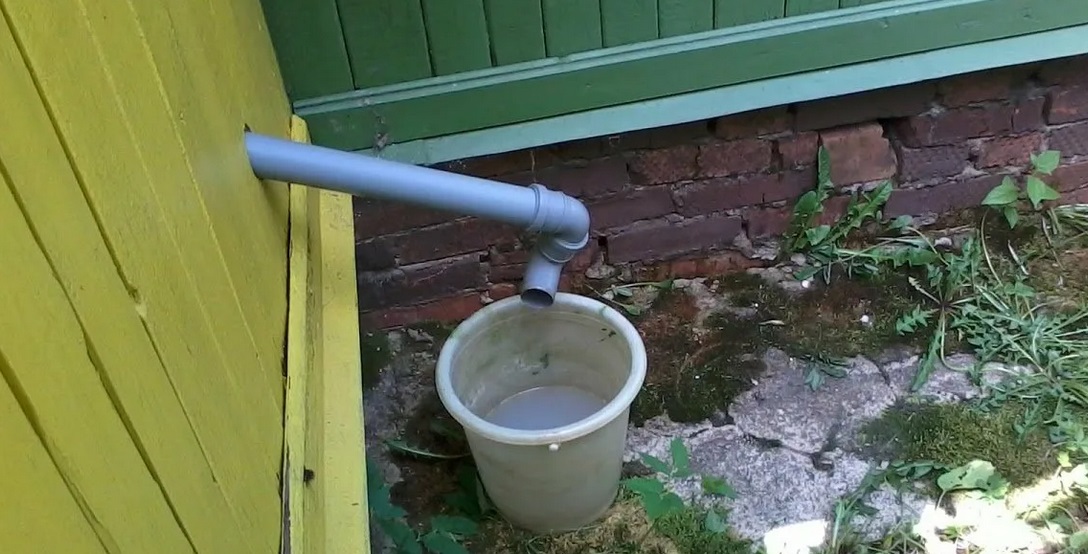
Using one of these methods, you can organize drainage of water from the washing machine in a private home. The simplest option is to dump the liquid from the machine into a separate reservoir. You will have to spend a little more on a filter cassette.
On sale you can find septic tanks that are not at all afraid of household chemicals.
When the septic tank is large enough, it simply will not feel one wash of the machine. Fifty liters of water in which the detergent is diluted will be “lost” in several “cubes” of the tank. Therefore, if you run only a couple of cycles a week, you don’t have to worry too much - this will not harm the bacteria colonizing the sump. And yet, even with a couple of washes a week, it is better to take care of the septic tank and use only natural detergents. Today in stores you can find many different formulations without phosphates, chlorine and other chemicals.
Interesting:
Reader comments
- Share your opinion - leave a comment

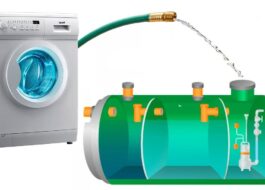
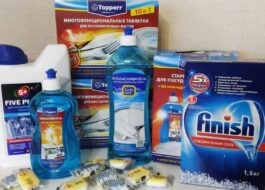
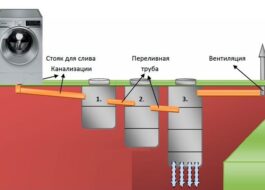
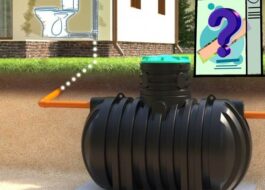
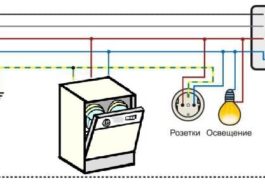
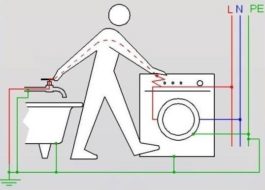


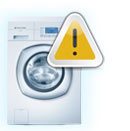
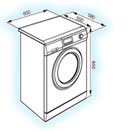


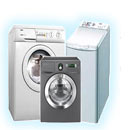
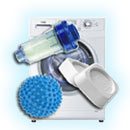


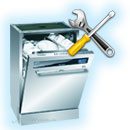
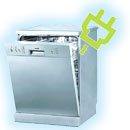
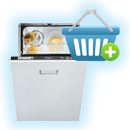
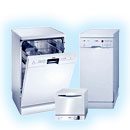
Add a comment